Classic British sports cars from the 1950s and 1960s make ideal candidates for a novice considering their first restoration project. Their elegantly simple engineering means that dismantling these vehicles to the last nut and bolt is straightforward for those seeking a high-end result. The ready availability of parts ensures there will be few items they won’t be able to purchase off the shelf. This 1957 Triumph TR3 is a perfect example of the breed, with this complete classic needing a new home. It has sat since the 1980s but is now listed here on eBay in West Chicago, Illinois. Bidding sits below the reserve at $5,300 off the back of strong buyer interest.
Triumph introduced the TR3 to the waiting world in 1955, and this must have been one of the last produced before it unveiled the updated TR3A in 1957. It retains the hallmarks of the earlier model, including the narrow grille. The good news for potential buyers is that it does appear complete. The listing photos show the side windows, which are in good condition. The top frame is present, but the top looks like it has seen better days. The car wears what appears to be its original British Racing Green paint, which shows the ravages of time. Dismantling the vehicle to the last nut and bolt in a home workshop is viable, allowing the opportunity to restore the frame, strip away the existing paint, and address its few rust issues. None of these are severe and could be tackled with patches rather than wholesale panel replacement. Many trim pieces will require a trip to the platers, but the windshield looks good.
Time has not been kind to this Triumph’s interior, but it is another aspect of this classic that looks complete. Positive attributes include the banjo-style wheel that appears to be crack-free and the gauges with their crisp markings. The surrounds are pitted, and the lenses show some age, but restoration kits retail for under $200. The upholstered surfaces are beyond help. However, with complete trim kits retailing for around $1,500, returning the interior to its former glory is another affordable undertaking that will provide the new owner with immense satisfaction once complete.
The TR3 was typical of British sports cars from this era, utilizing an engine from a different model that produced relatively modest power. In this case, Triumph grabbed the 1,991cc four from the Standard lineup, fitting it with a pair of SU carburetors to produce 95hp and 117 ft/lbs of torque. The power fed to the rear wheels via a four-speed manual transmission. While the car was not a genuine high-performance model, the occupant’s proximity to Planet Earth provided the illusion that these classics were considerably faster than the speedometer needle suggested. The drag strip was not their natural home, but these little gems come alive when pointed at a ribbon of twisting road. The seller indicates this car has sat since the 1980s, making it unsurprising that it doesn’t run. However, the engine turns freely on the starter, raising the intriguing possibility that a fuel system clean and basic maintenance could see it roar back to life.
The 1957 Triumph TR3 is no different from any other classic we have seen at Barn Finds; It won’t appeal to everyone. However, prices are climbing steadily, with nicely restored examples consistently selling for over $30,000. Perfection will net a value beyond $40,000, and that appears achievable with this car. I still stand by my belief that these cars are perfect candidates for someone considering their first project build. Are you tempted?
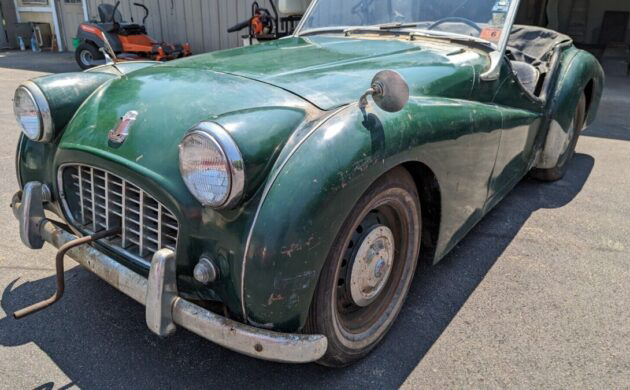
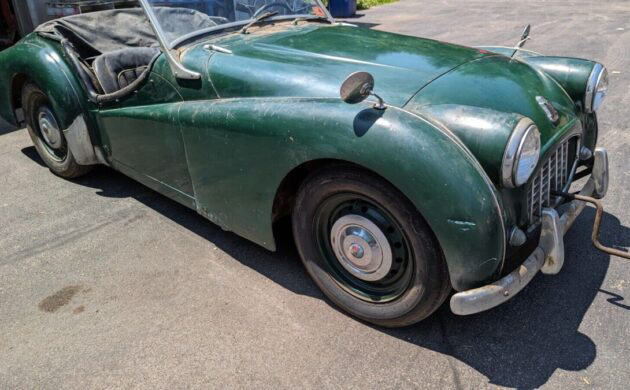
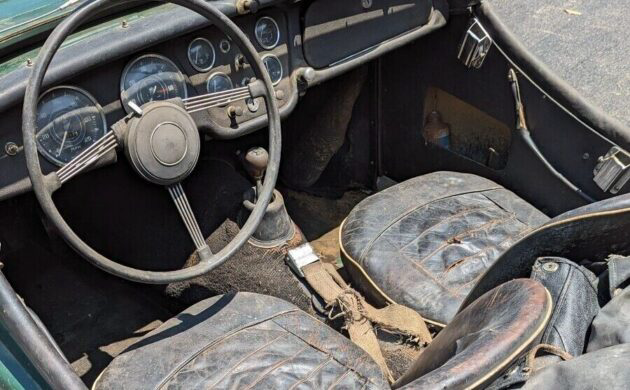
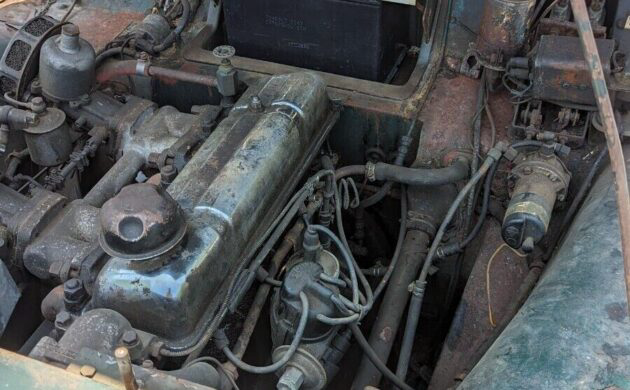
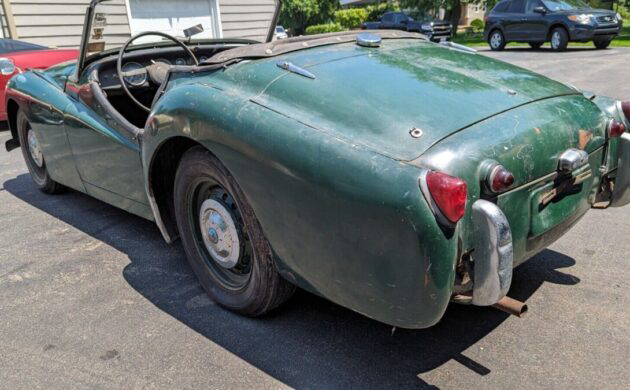




I don’t know if I would recommend this as your first restoration. I’m doing one right now and it’s far more difficult than most American cars. Also extremely expensive, costs about twice as much to rebuild the motor than a V8. Parts are readily available but also really expensive. They are awesome little cars though and this one looks solid but you won’t know until you dig deeper. Floors and inner sills are often shot which is a pretty big job to do.
Restoring one now, same year except wire wheels. Mine was restored but not finished, so I am putting it back together without the benefit of being able to know where all the pieces go. This one looks complete and pretty original, so if the frame and bodywork is solid, this is well worth the efforts. But I say that for someone that can do the work, as if you have to pay a shop, this will quickly get well past 40K. The previous owner of my TR3 had paid a shop over 50K to have the chassis and body restored before he ran out of money. I have talked to shops that have restored these cars for big money so you have to be careful. A car like this, once you strip it down, and find body issues and then pull it off the chassis, and go further down the rabbit hole, and you are upside down quickly. But this one looks pretty solid and could be a excellent project for a home restorer familiar with these cars.
Better to buy a restored car. Then you know how much you have in it.
I am truly blown away by the number of comments! Some complementary, some are not.
Five years ago I bought a ’61 Dauphine on eBay, which was advertised as museum quality and once it was delivered, nothing could’ve been further from the truth. eBay did not honor their buyer protection guarantee so I recommend anybody, always personally or pay a pro to inspect first before bidding.
However, during the lockdown, it gave me something to do so I rebuilt the engine and part of the transaxle. I must admit the build quality on the Volkswagen is significantly better, but the little Dauphine is so unique and reasonably comfortable. It is fine for putting around town but no way I would venture out on an interstate with the number of inept and distracted drivers out there.
I have a 1500 Midget and have found that parts are very reasonable. I use MOSS a lot but also found that many parts are shared with Massey Ferguson tractors!
This makes sense since Standard and MF were based in Coventry.
Parts out of an MF box are even a better deal.